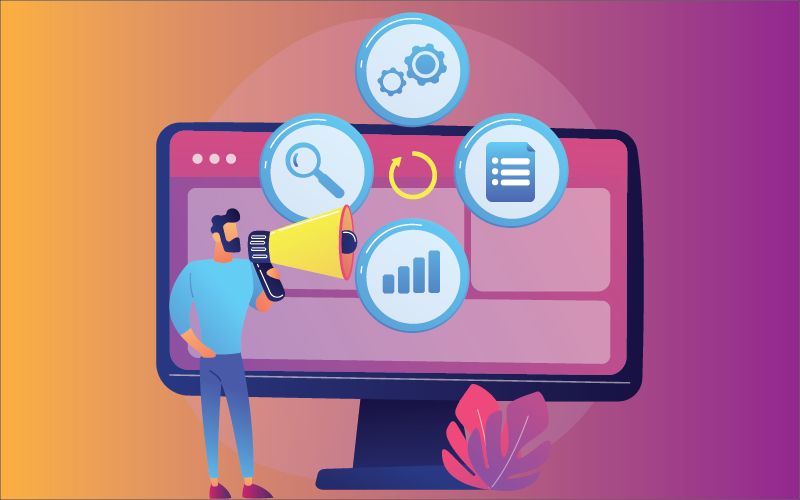What Is Intentional Marketing? Definition and Examples
The fundamental objective of marketing is to seamlessly connect your products or services with your target audience. This connection has the potential to impact individuals’ lives significantly. However, building such connections is no straightforward task, given the unpredictability of consumer behaviour. It’s a well-established fact that purchasing decisions seldom occur in isolation. Consumers frequently engage in discussions with friends, family, colleagues, and online communities before making choices. To make your marketing efforts truly effective, it becomes imperative to adopt a more intentional approach. Breaking free from the marketing noise requires the establishment of a robust system that propels customers into action. Achieving this necessitates conducting thorough research to comprehend the system that aligns with the nature of your business. Crafting intentional marketing strategies empowers your brand to stand out and engage customers purposefully.
Defining Intentional Marketing and Its Strategic Impact
Intentional marketing shares similarities with effective branding, creating a systematic approach that crafts a distinctive and cohesive narrative about your business and its capacity to address customer needs. Unlike sporadic marketing endeavours devoid of a cohesive strategy, intentional marketing focuses on understanding and addressing the desires of your audience.
The crux of intentional marketing lies in ensuring the high quality of your products or services. Achieving this necessitates a well-devised strategy to guide your efforts effectively. The essence of intentional marketing is marked by a deliberate approach to strategies, emphasizing customer satisfaction rather than immediate revenue generation. Ultimately, identifying and meeting customer needs becomes the cornerstone for increasing income.
Intentional Marketing: A Focus-Driven Approach
Being intentional in marketing entails a precise understanding of your objectives and a willingness to invest time and resources accordingly. In the marketplace, the perspective that matters most is not your own but that of your customers their thoughts and actions concerning your offerings.
Echoing this sentiment, Peter Drucker asserted that marketing is essentially the entire business seen from the customer’s standpoint. Implementing intentional marketing strategies involves having distinct, customer-centric objectives and learning how to engage effectively with your audience.
Moreover, intentional marketing guides you in determining which products or services to promote, who your target audience should be, and how to effectively reach them. This stands in stark contrast to random marketing activities where progress is challenging to measure, potentially harming your brand.
With intentional marketing, your business experiences sustainable and focused growth. You gain insights into what is crucial for the long-term development of your business.
Preventing Customer Confusion through Intentional Marketing

The age-old adage that a confused mind never buys holds, especially in marketing. Random marketing actions run the risk of confusing your customers because of the lack of a comprehensive plan or a compelling narrative.
A well-crafted business story can be a potent tool for attracting and retaining customers, provided it is executed with intention. In contrast, haphazardly communicating inconsistent messages to new customers can lead to confusion and, ultimately, hinder revenue growth.
Intentional marketing ensures you have a systematic approach that tells a cohesive story about your business and how it uniquely addresses customer needs. When executed effectively, businesses, including small marketing companies, can expand their follower base, reach a wider audience, and ultimately elevate revenue.
Intentional Marketing for Enhanced Effectiveness
An example of intentional marketing involves creating a Facebook business page to raise awareness of your products or services. While income generated from the page is exciting, it is not the primary goal.
The fundamental objective is to acquaint people with your business and encourage them to share their email addresses. This allows you to compile a list and send regular educational emails to prospective customers, detailing how your products address their needs.

These emails guide customers to a dedicated page for product purchases, service sign-ups, or appointments. The Facebook business page’s primary focus is not revenue generation; rather, it serves as a strategic step in the customer journey.
By developing a strategy to move prospective customers from awareness to purchase, you become more efficient and effective essentially practising intentional marketing.
Successful companies in marketing often rely on digital marketing agencies for efficient and effective strategies. Focusing efforts and resources on specific marketing actions helps small business marketing companies increase revenue.
Intentional Marketing for Enhanced Effectiveness
An example of intentional marketing involves creating a Facebook business page to raise awareness of your products or services. While income generated from the page is exciting, it is not the primary goal.
The fundamental objective is to acquaint people with your business and encourage them to share their email addresses. This allows you to compile a list and send regular educational emails to prospective customers, detailing how your products address their needs.
These emails guide customers to a dedicated page for product purchases, service sign-ups, or appointments. The Facebook business page’s primary focus is not revenue generation; rather, it serves as a strategic step in the customer journey.
By developing a strategy to move prospective customers from awareness to purchase, you become more efficient and effective—essentially practising intentional marketing.
Successful companies in marketing often rely on digital marketing agencies for efficient and effective strategies. Focusing efforts and resources on specific marketing actions helps small business marketing companies increase revenue.
5 Steps for Creating an Intentional Marketing Approach
Understand the Sales Cycle: Companies, regardless of size, should be aware of their sales seasons. Develop a well-laid marketing strategy ahead of your peak season to cover all aspects and meet customer needs effectively.
Determine Business Scope: Decide whether your marketing efforts will target a local, regional, or national audience. A local business launching a new product may require minimal time and local media outlets. In contrast, national marketing demands more extensive planning, effort, and resources. Consider the scope and marketing tools needed for effective storytelling. For businesses expanding beyond their usual base, a digital marketing agency’s services may be beneficial.
Establish a Budget Range: Define the scope to calculate the total budget needed for the entire marketing period. Determine whether traditional or digital media suits your product or service. Budget considerations can guide your choice of media and strategies, such as incentive-based social media or time-limited offers, to maximize impact.
Plan Strategically: Based on previous considerations, select the right media mix to reach your target audience. Conduct thorough research on influential traditional and online media channels. Make informed decisions to avoid wasting the budget, considering factors like a Super Bowl commercial’s broad reach versus its cost. Critically assess the reasons for specific marketing investments and refine the plan based on team feedback.
Implement and Measure: Initiate the marketing campaign and gather feedback, distinguishing between unreliable and measurable data. Utilize quantifiable data to make informed decisions and continuously refine your marketing approach. Building a competent team or seeking assistance from a digital marketing agency with diverse expertise can greatly support achieving your business goals.
Takeaway
Before concluding, three crucial considerations should be emphasized. First and foremost, consistently inform your audience about your offerings through various channels like social media, SMS, and more.
Secondly, regularly generate new sales offers that are not only attractive but also stand out with creativity. Ensuring uniqueness in your offers can enhance their effectiveness.
Lastly, reconnect with your existing clients. Inquire whether they are aware of individuals in their network who might benefit from your products or services. Leveraging referrals can prove to be a potent tool in expanding your reach and customer base.

